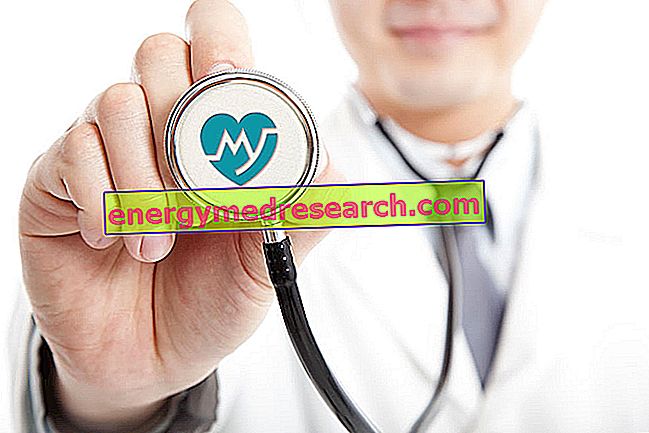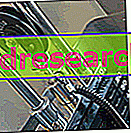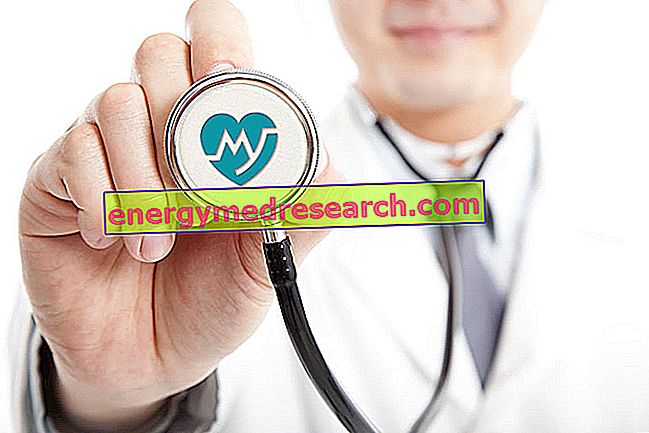What is early menopause?
Menopause is defined as early when it occurs before the age of 40. This condition can be spontaneous or induced by some medical treatments, such as chemotherapy or surgery (ovariectomy, hysterectomy ...).

General information on available treatments
Unfortunately, treatments are not currently available to restore regular and continuous ovarian activity. Also in the case of immunosuppressive or corticosteroid therapies, proposed for cases of early ovarian failure (POF) on an autoimmune basis, the results produced were disappointing, especially if the potential side effects are considered. Women who suffer from early menopause are expected to have a long period of post-menopausal life; for this reason, compared to women entering menopause around the age of 50, they are exposed to an increased risk of consequences - such as the early onset of osteoporosis or cardiovascular problems - associated with alterations in hormonal balance. For these reasons, the goal of therapy is to ensure patients a good quality of life, while implementing effective measures to reduce the risk of particular diseases, especially associated with estrogen deficiency. Symptoms and health risks can be managed with methods similar to those used for natural menopause. An effective therapy for the problems of early menopause must first be personalized; a drug regimen is not always necessary and in any case one must take into account the disorders and possible associated complications, but above all the risk-benefit ratio.
The different types of treatment provided for symptom relief include:
Hormone replacement therapy
Hormone therapy usually involves the administration of estrogens associated with progestins, hormones that the ovaries are no longer able to produce in sufficient quantities. Sometimes, the treatment can also include testosterone or its derivatives. After obtaining the diagnostic confirmation, the doctor prescribes a therapy to be repeated cyclically, approximately up to 50 years, average age of "natural" menopause. The treatment protocol (duration, dose, etc.) must be carefully evaluated with a specialist and weighted for each patient. Estrogen therapy helps prevent osteoporosis, alleviate hot flashes, vaginal dryness and other symptoms caused by estrogen deficiency, but will not restore juvenile ovarian function. Generally, estrogens are prescribed in association with progesterone, to provide additional protection to the endometrium (the lining of the uterus) from precancerous changes that can be induced by estrogen intake alone. If the patient shows a willingness to get pregnant, by combining these hormones you can try to restore the menstrual cycle, to take advantage of the limited possibilities of trying a pregnancy. Hormonal treatments can be administered in different forms: pills, gels, patches are available that are applied to the skin or a vaginal ring, which is replaced after a few months. In older women, long-term combined replacement therapy has been associated with an increased risk of cardiovascular disease (heart attack and stroke) and breast cancer. In these cases, experts advise following hormonal therapy at the lowest effective dose for the shortest possible time. In young women with premature ovarian failure, however, the benefits of hormone replacement therapy are generally greater than the potential risks.
Oral contraceptives
In the transition phase, in which the menstrual cycle is still present in an irregular form, the doctor can indicate a therapy with oral contraceptives to alleviate the symptoms of menopause and reduce the unpredictability of the onset of menstruation. The pill also satisfies any need to avoid unwanted conceptions if the woman does not want to have children.
Antidepressants
Selective serotonin inhibitors (SSRIs) and some related drugs have been shown to be effective in controlling symptoms, such as hot flashes, in more than 60% of women.
Gels, creams and lubricants
These are localized treatments suitable for preventing or alleviating vaginal dryness.
Infertility treatment
Assisted reproduction techniques to deal with infertility
Infertility is a common complication in early menopause and there are rarely effective treatments to restore fertility in women with this condition. However, according to some studies, about one in 10 women diagnosed with spontaneous early menopause can become pregnant, for reasons that are not yet clear.
Options for early menopausal women who wish to become pregnant can be discussed with the help of a specialist. In the case of a strong desire for maternity, there are specialized centers where ovulation induction therapy can be attempted, stimulated by the administration of FSH ( follicle-stimulating hormone), LH ( luteinizing hormone) and hCG ( chorionic gonadotropin) . The combination of these three hormones causes the ovary to produce oocytes: the response to stimuli is monitored by ultrasound and allows to assess whether the therapeutic regimen has reached a satisfactory outcome (a condition that is reached in less than 10% of patients). In the case of effective hormonal induction, the assisted fertilization protocol is applied.
Other therapeutic measures
- When early menopause is associated with pathological conditions, such as thyroid disease or diabetes, further medical treatment may be required.
- As highlighted above, women with early menopause are exposed to low estrogen levels for a longer period of life; this exposes them to a greater risk of conditions such as osteoporosis . The MOC (Computerized Bone Mineralometry), a survey carried out also in the diagnostic phase, allows to monitor the possible compromise of the basal bone density; therefore patients should repeat the analysis at least every two years.
Furthermore, to prevent bone demineralization it is possible to use:
- Calcium and vitamin D supplements;
- Constant physical activity, which - especially in the open air - can help keep bone tissue healthy and improve mood;
- In case of osteopenia and a high risk of osteoporotic fractures, adequate systemic treatment can be used.
Prevention
Can early menopause be prevented?
At this time, no therapy is available to prevent early menopause.
Some measures can be taken to preserve good general health and adopt a healthy lifestyle :
- A balanced diet and low fat content, allows to avoid weight gain, which is generally accompanied by early menopause;
- Regular exercise, preferably aerobic, allows you to keep fit and fight weight gain. In addition, it can help protect bone mass and the heart, and can counteract the forms of osteoarthritis associated with menopause and joint pain (in particular, in the hands, knees and back).
- To control some symptoms, it is possible to take food supplements . Some examples are:
- Soy isoflavones : help to control hot flashes;
- Vitamin D and calcium : in case of osteoporosis;
- Melatonin : for sleep disorders;
- Omega 3 fatty acids : against high cholesterol.
- Avoid smoking and alcohol : smoking and alcohol abuse are risk factors that can potentially anticipate menopause, so they should be minimized.



